Deck 4: Section 6: Applications of Differentiation
Question
Question
Question
Question
Question
Question
Question
Question
Question
Question
Question
Question
Question
Question
Question
Question
Question
Question
Question
Question
Question
Question

Unlock Deck
Sign up to unlock the cards in this deck!
Unlock Deck
Unlock Deck
1/22
Play
Full screen (f)
Deck 4: Section 6: Applications of Differentiation
1
The graph of a function f is is shown below. 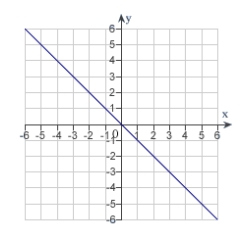 Sketch the graph of the derivative
Sketch the graph of the derivative  .
.
A)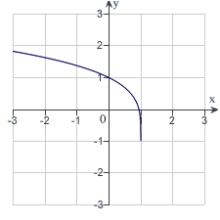
B)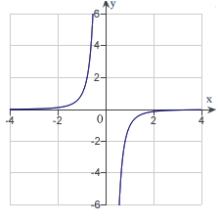
C)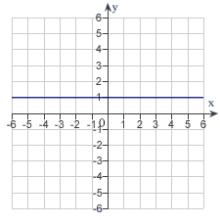
D)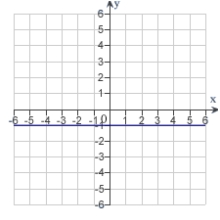
E)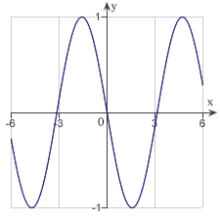
 Sketch the graph of the derivative
Sketch the graph of the derivative  .
.A)

B)

C)

D)

E)


2
The graph of f is shown below. For which values of x is  zero?
zero? 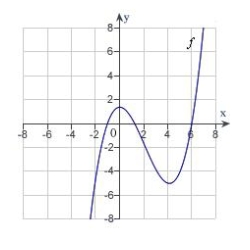
A)
B)
C)
D)
E)
 zero?
zero? 
A)

B)

C)

D)

E)


3
The graph of a function f is is shown below. Sketch the graph of the derivative  .
. 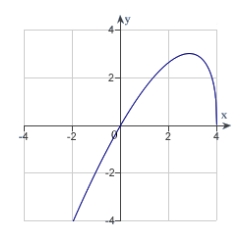
A)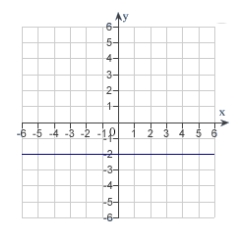
B)
C)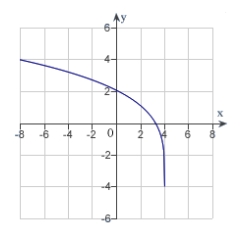
D)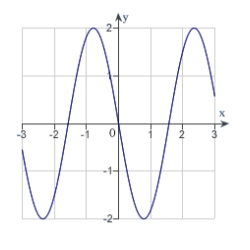
E)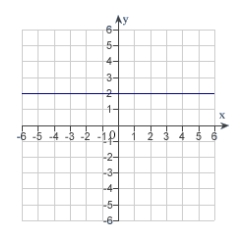
 .
. 
A)

B)

C)

D)

E)


4
A meteorologist measures the atmospheric pressure P (in kilograms per square meter) at altitude h (in kilometers). The data are shown below. Use the regression capabilities of the graphing utility to find a linear model for the revised data points obtained by plotting the points 

A)
B)
C)
D)
E)


A)

B)

C)

D)

E)


Unlock Deck
Unlock for access to all 22 flashcards in this deck.
Unlock Deck
k this deck
5
The graph of a function f is is shown below. Sketch the graph of the derivative  .
. 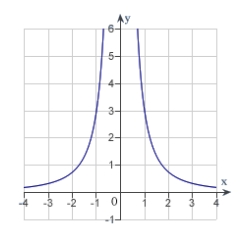
A)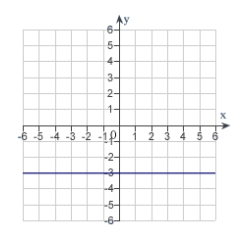
B)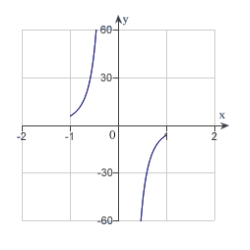
C)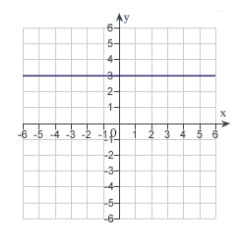
D)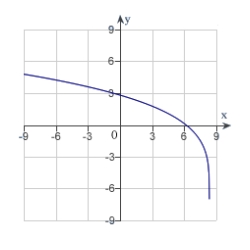
E)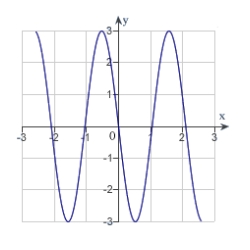
 .
. 
A)

B)

C)

D)

E)


Unlock Deck
Unlock for access to all 22 flashcards in this deck.
Unlock Deck
k this deck
6
Sketch a graph of the function  over the interval
over the interval  .
.
A)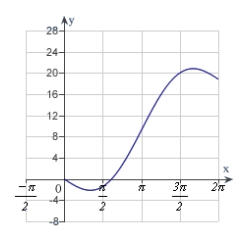
B)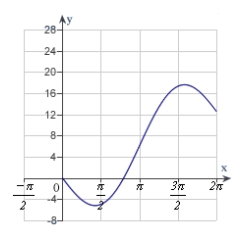
C)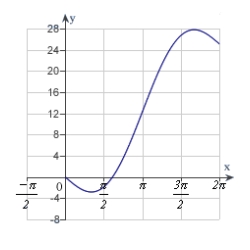
D)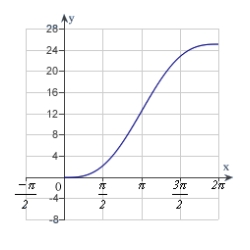
E)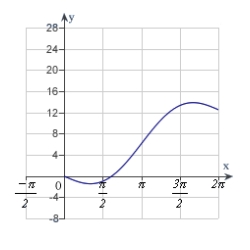
 over the interval
over the interval  .
.A)

B)

C)

D)

E)


Unlock Deck
Unlock for access to all 22 flashcards in this deck.
Unlock Deck
k this deck
7
Analyze and sketch a graph of the function  .
.
A)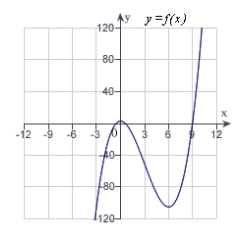
B)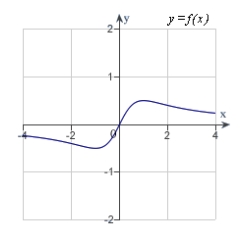
C)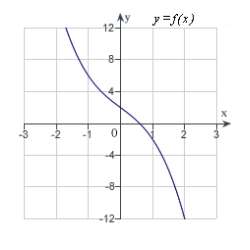
D)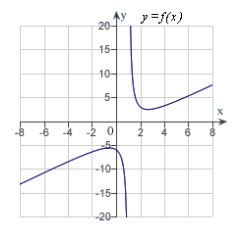
E)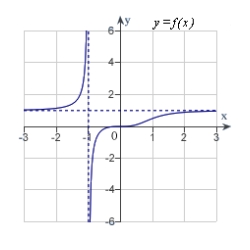
 .
.A)

B)

C)

D)

E)


Unlock Deck
Unlock for access to all 22 flashcards in this deck.
Unlock Deck
k this deck
8
Analyze and sketch a graph of the function  .
.
A)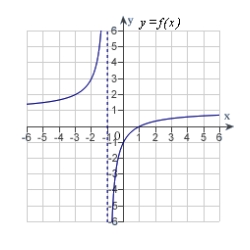
B)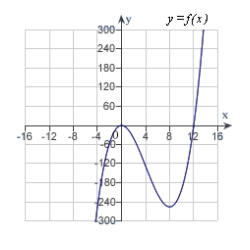
C)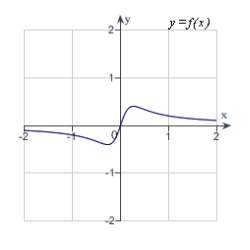
D)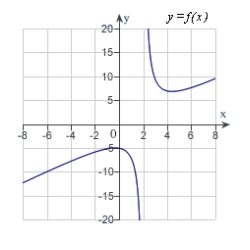
E)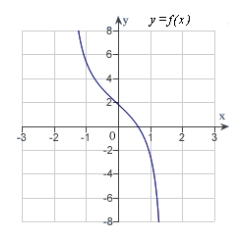
 .
.A)

B)

C)

D)

E)


Unlock Deck
Unlock for access to all 22 flashcards in this deck.
Unlock Deck
k this deck
9
The graph of f is shown below. For which value of x is  minimum?
minimum? 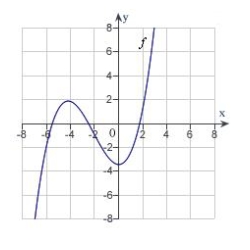
A)
B)
C)
D)
E)
 minimum?
minimum? 
A)

B)

C)

D)

E)


Unlock Deck
Unlock for access to all 22 flashcards in this deck.
Unlock Deck
k this deck
10
Determine the slant asymptote of the graph of  .
.
A)
B)
C)
D)
E) no slant asymptotes
 .
.A)

B)

C)

D)

E) no slant asymptotes

Unlock Deck
Unlock for access to all 22 flashcards in this deck.
Unlock Deck
k this deck
11
Analyze and sketch a graph of the function  .
.
A)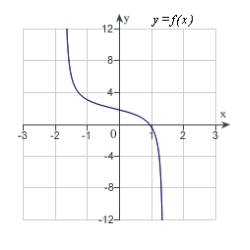
B)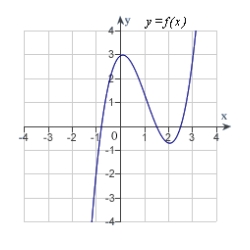
C)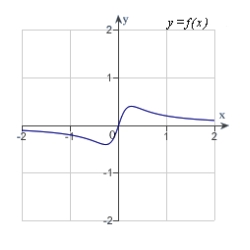
D)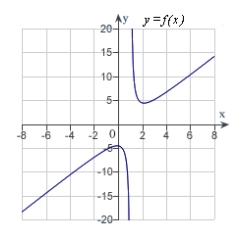
E)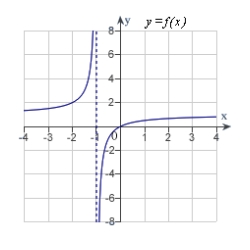
 .
.A)

B)

C)

D)

E)


Unlock Deck
Unlock for access to all 22 flashcards in this deck.
Unlock Deck
k this deck
12
The graph of f is shown below. For which value of x is  zero?
zero? 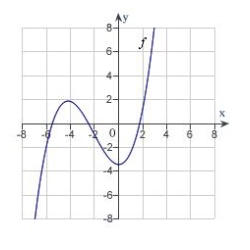
A)
B)
C)
D)
E)
 zero?
zero? 
A)

B)

C)

D)

E)


Unlock Deck
Unlock for access to all 22 flashcards in this deck.
Unlock Deck
k this deck
13
The graph of f is shown below. On what interval is  an increasing function?
an increasing function? 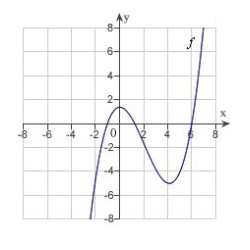
A)
B)
C)
D)
E)
 an increasing function?
an increasing function? 
A)

B)

C)

D)

E)


Unlock Deck
Unlock for access to all 22 flashcards in this deck.
Unlock Deck
k this deck
14
Analyze and sketch a graph of the function  .
.
A)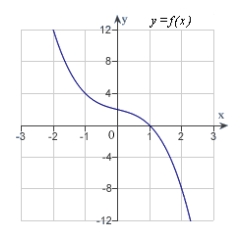
B)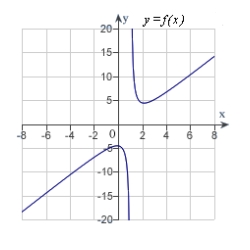
C)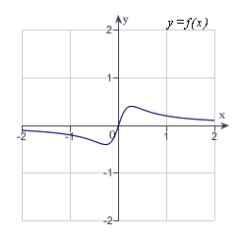
D)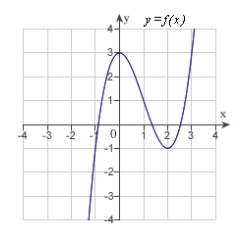
E)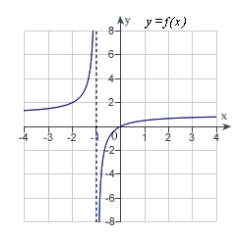
 .
.A)

B)

C)

D)

E)


Unlock Deck
Unlock for access to all 22 flashcards in this deck.
Unlock Deck
k this deck
15
Analyze and sketch a graph of the function  .
.
A)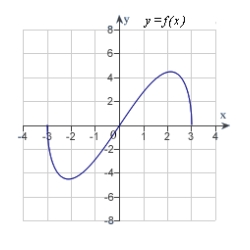
B)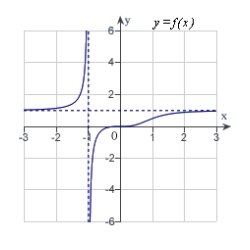
C)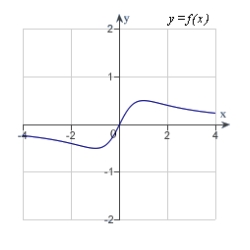
D)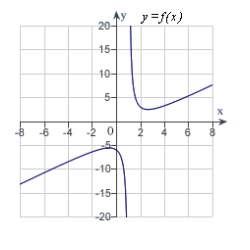
E)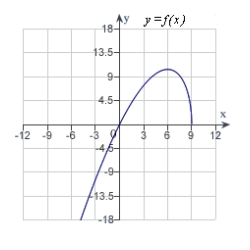
 .
.A)

B)

C)

D)

E)


Unlock Deck
Unlock for access to all 22 flashcards in this deck.
Unlock Deck
k this deck
16
Analyze and sketch a graph of the function  .
.
A)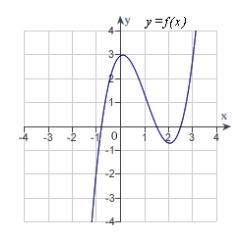
B)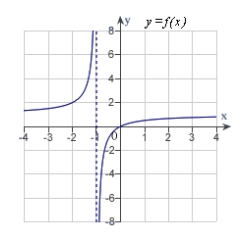
C)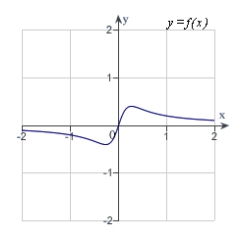
D)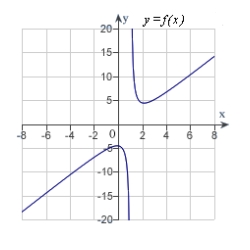
E) none of the above
 .
.A)

B)

C)

D)

E) none of the above

Unlock Deck
Unlock for access to all 22 flashcards in this deck.
Unlock Deck
k this deck
17
Analyze the graph of the function  . Determine any intercepts, relative extrema, points of inflection and asymptotes. Also determine where the graph is increasing or decreasing and concave up or concave down. Then identify the graph from the choices below.
. Determine any intercepts, relative extrema, points of inflection and asymptotes. Also determine where the graph is increasing or decreasing and concave up or concave down. Then identify the graph from the choices below.
A)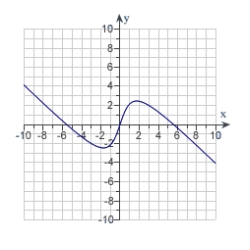
B)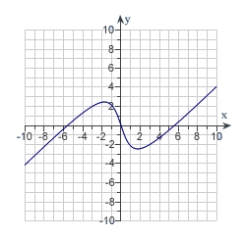
C)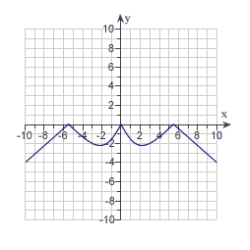
D)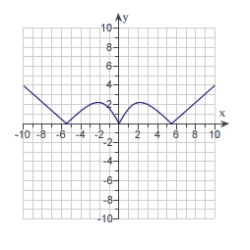
E)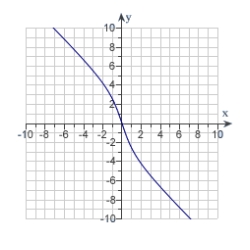
 . Determine any intercepts, relative extrema, points of inflection and asymptotes. Also determine where the graph is increasing or decreasing and concave up or concave down. Then identify the graph from the choices below.
. Determine any intercepts, relative extrema, points of inflection and asymptotes. Also determine where the graph is increasing or decreasing and concave up or concave down. Then identify the graph from the choices below.A)

B)

C)

D)

E)


Unlock Deck
Unlock for access to all 22 flashcards in this deck.
Unlock Deck
k this deck
18
Sketch a graph of the function  over the interval
over the interval  .
.
A)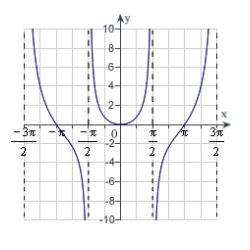
B)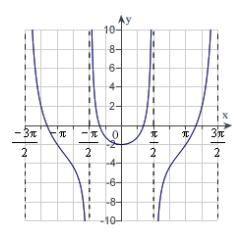
C)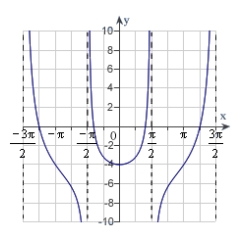
D)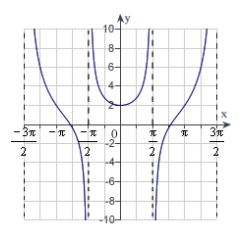
E)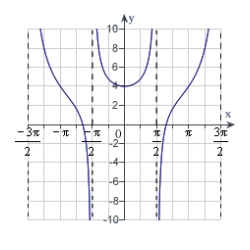
 over the interval
over the interval  .
.A)

B)

C)

D)

E)


Unlock Deck
Unlock for access to all 22 flashcards in this deck.
Unlock Deck
k this deck
19
Analyze and sketch a graph of the function  .
.
A)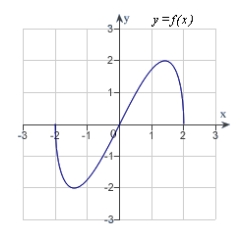
B)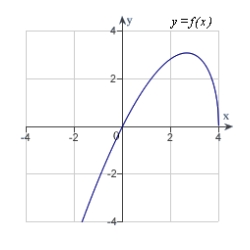
C)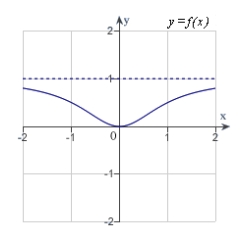
D)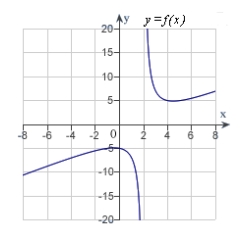
E)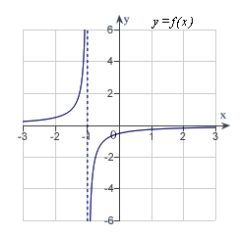
 .
.A)

B)

C)

D)

E)


Unlock Deck
Unlock for access to all 22 flashcards in this deck.
Unlock Deck
k this deck
20
The graph of a function f is is shown below. Sketch the graph of the derivative  .
. 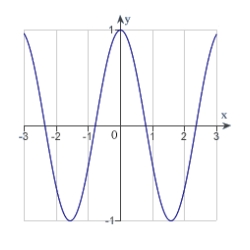
A)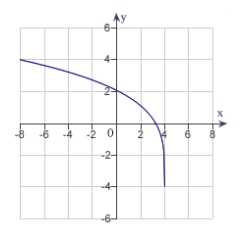
B)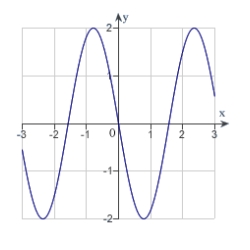
C)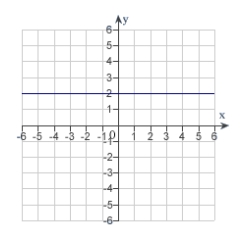
D)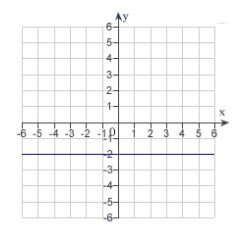
E)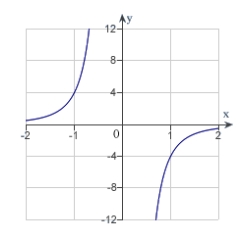
 .
. 
A)

B)

C)

D)

E)


Unlock Deck
Unlock for access to all 22 flashcards in this deck.
Unlock Deck
k this deck
21
A valve on a storage tank is opened for 4 hours to release a chemical in a manufacturing process. The flow rate R (in liters per hour) at time t (in hours) is given by the linear model  Write the linear model in exponential form.
Write the linear model in exponential form.
A)
B)
C)
D)
E)
 Write the linear model in exponential form.
Write the linear model in exponential form.A)

B)

C)

D)

E)


Unlock Deck
Unlock for access to all 22 flashcards in this deck.
Unlock Deck
k this deck
22
A meteorologist measures the atmospheric pressure P (in kilograms per square meter) at altitude h (in kilometers). The data are shown below. Find the rate of change of the pressure with respect to altitude when  using the relation
using the relation  . Round your answer to one decimal place.
. Round your answer to one decimal place. 
A)
B)
C)
D)
E)
 using the relation
using the relation  . Round your answer to one decimal place.
. Round your answer to one decimal place. 
A)

B)

C)

D)

E)


Unlock Deck
Unlock for access to all 22 flashcards in this deck.
Unlock Deck
k this deck



